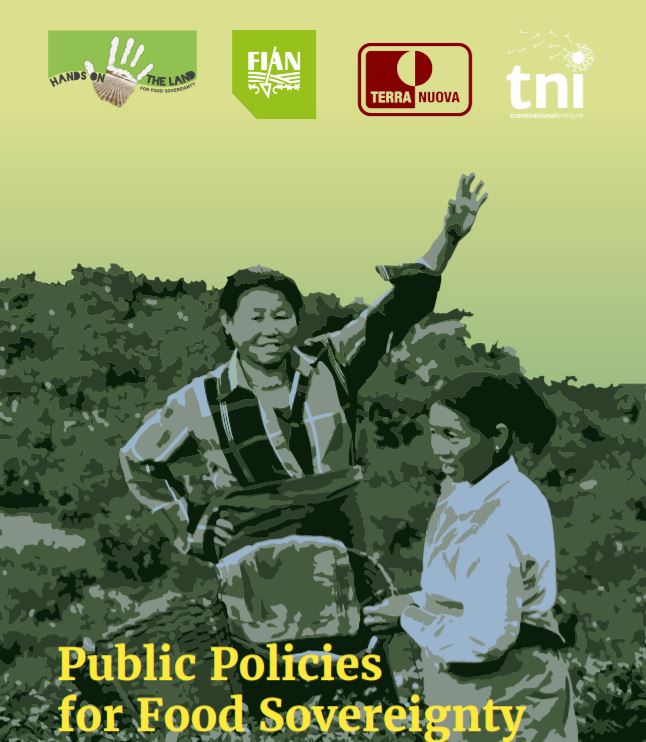The first issue of the ‘Think Piece Series Food for Thought’ comes out looking into the political significance of leveraging public policies in support of food sovereignty.
Public policies play a determinant role in shaping the future of agricultural and food systems: they can underwrite legal frameworks to ensure the realization of the right to food; bolster the investments made by small-scale food producers; and mobilize societal resources in support of sustainable food systems based on notions of resilience, decent work, environmental integrity and the provision of healthy food.
These outcomes are however far from assured. In the current neoliberal juncture, public policies skew heavily towards a highly competitive, specialized and industrial form of agriculture that favors exclusive development and an exploitative macro-economic model. Often these policies build on a much longer history of uneven development in which agriculture and rural areas are viewed as sectors and spaces to be transitioned out of, as urbanization, industry, services and the financial economy are prioritized.
This makes clear that public policies are tools, not ends in and of themselves. Without proper grounding in a solid theory of change linked to notions of a just transition democratic decision making, and a social and solidarity economy, public policies will be unable to confront the challenges facing food and agriculture in the 21st century.
Such a vision is offered by the political project of food sovereignty. Food sovereignty is based on the right of peoples to define their own food system and to develop policies on how food is produced, distributed and consumed. It is above all a political call for action that it is based on empowerment processes and the generation of critical knowledge in support of the collective and popular construction of alternatives.
This paper, written by Transnational Institute, FIAN International, Hands on the Land and Terra Nuova, looks into this discussion.
You can download the paper here.





